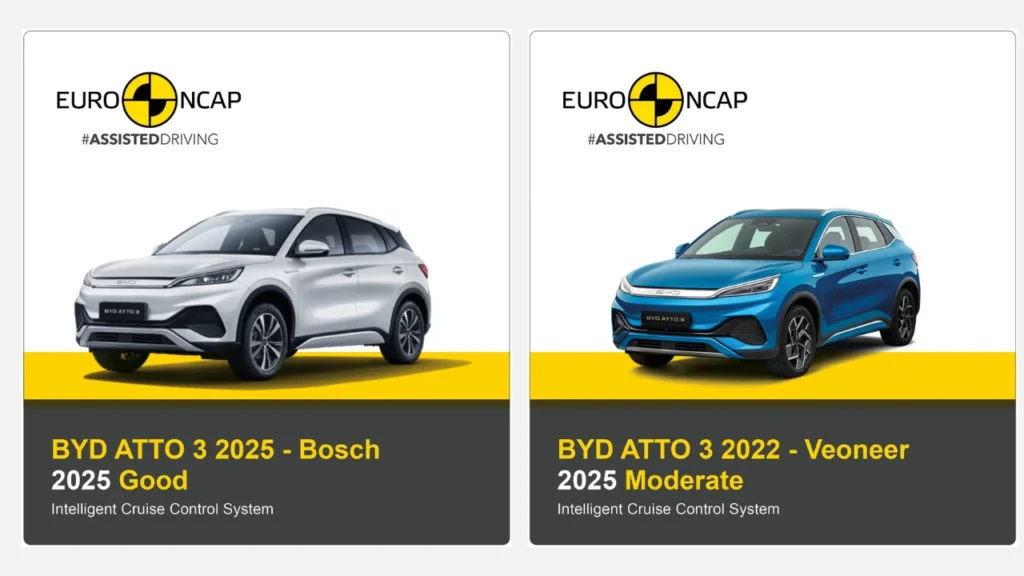BYD Atto 3 Improves Assisted Driving System After Euro NCAP ‘Not Recommended’ Grade
BYD has taken swift action to significantly improve the Assisted Driving system in its popular Atto 3 electric SUV. This move comes after Euro NCAP issued a rare “Not Recommended” grading to the 2022 model-year Atto 3’s system in October 2024, citing serious shortcomings in its Intelligent Cruise Control (BYD’s Level 2 system).
Addressing Critical Safety Flaws
During its 2024 assessment, Euro NCAP safety experts found that the Atto 3’s Intelligent Adaptive Cruise Control failed to respond appropriately when approaching other cars or motorcycles and did not take proper action when the driver was unresponsive. This led to a low score of just 55% in Assistance Competence and 35% in Safety Backup, resulting in the organization’s first-ever “Not Recommended” grading for an Assisted Driving system.
BYD has now responded by implementing crucial updates:
- For 2022 Model-Year Atto 3s: An over-the-air (OTA) software update has been rolled out. Once updated, these vehicles will achieve a “Moderate” Assisted Driving grading from Euro NCAP, with improved scores of 60% in Assistance Competence and 72% for Safety Backup.
- For 2025 Model-Year Atto 3s: These vehicles feature a whole new Assisted Driving system which has earned a “Good” grading from Euro NCAP, with impressive scores of 67% in Assistance Competence and 80% in Safety Backup.
Euro NCAP Welcomes BYD’s Response
Richard Schram, Technical Director at Euro NCAP, expressed satisfaction with BYD’s prompt response. “We are pleased that BYD has responded to our 2024 test results with a software update for existing models and a new, improved ‘Good’-achieving Assisted Driving system for the 2025 model year ATTO 3,” Schram stated. He emphasized the importance of existing owners installing the latest software update to benefit from the improved system and advised contacting local BYD dealers for assistance if unsure.
The Future of Assisted Driving Assessments
Looking ahead, Euro NCAP will introduce new Assisted Driving protocols and on-road vehicle testing of these systems from 2026. This innovative approach aims to improve both the functionality of driver-assistance systems and the overall user experience. Schram highlighted that unreliable or unpredictable Assisted Driving systems lead to drivers disengaging, thus negating potential safety benefits.
“By evolving our testing and scoring methods, we are pushing manufacturers to develop more sophisticated Assisted Driving systems, while ensuring the driver remains engaged in the driving role,” Schram added. Euro NCAP strongly recommends that car buyers perform extensive test drives with all systems on before purchasing a vehicle, given the varied characteristics and warning strategies across different manufacturers.
Also Read –BMW i4 vs Tesla Model 3: How the New Design Could Change the Competition



